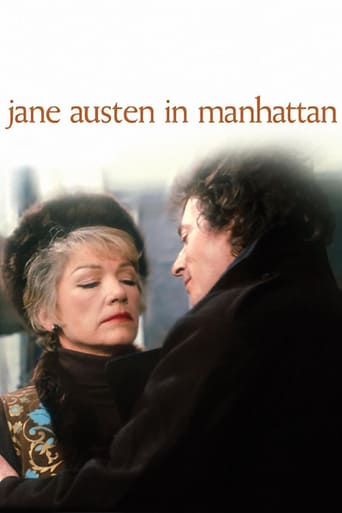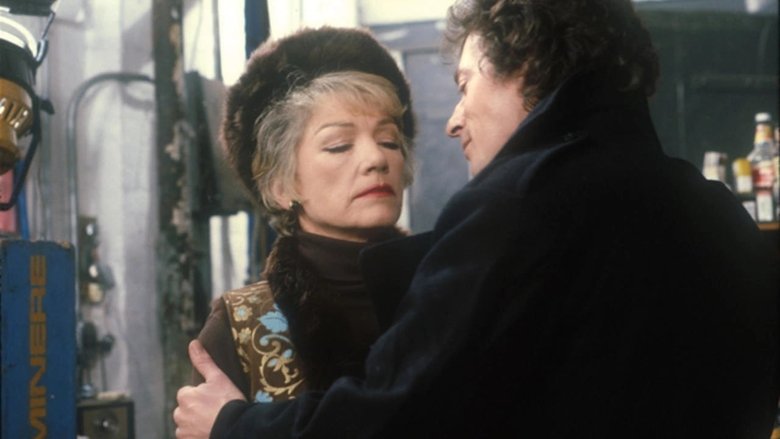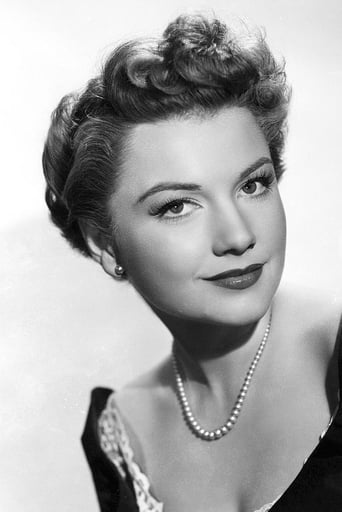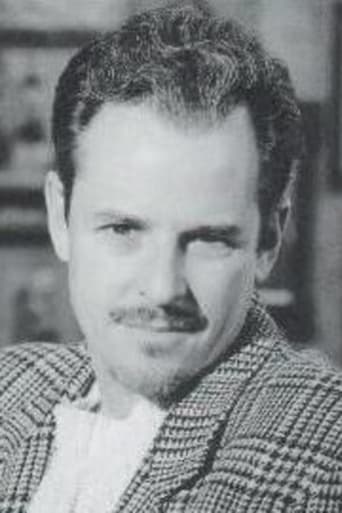

Jane Austen in Manhattan (1980)
Two teachers vie for the right to stage a play written by Jane Austen when she was twelve years old.
Watch Trailer
Cast


Reviews
Overrated and overhyped
The acting is good, and the firecracker script has some excellent ideas.
The plot isn't so bad, but the pace of storytelling is too slow which makes people bored. Certain moments are so obvious and unnecessary for the main plot. I would've fast-forwarded those moments if it was an online streaming. The ending looks like implying a sequel, not sure if this movie will get one
It’s sentimental, ridiculously long and only occasionally funny
Having acquired the rights to a play penned by Jane Austen during her childhood, an avant-garde theatre director attempts to do justice to Austen's words and "bring her up-to-date" while a former associate tries to convince his actors to perform the play more traditionally in this little seen Merchant-Ivory film. Robert Powell, fresh from 'Harlequin' (where he played an equally hypnotic character), is solid as the avant-garde director in question who believes that "we all live in clichés" and that his fey vision is faithful. Anne Baxter in her last big screen performance is also well cast as his former associate. It is not, however, always interesting to watch them argue source material fidelity and with much talk and limited atmosphere and action, 'Jane Austen in Manhattan' has found a reputation as Merchant-Ivory's nadir. Such an assessment may be a little harsh, however, this is very much one of those films where the story behind it is more fascinating than the movie itself. Apparently James Ivory acquired the film rights to Austen's play without having even read it. Upon reading the play and finding it insubstantial for motion picture (Austen was, of course, very young when she wrote it), Ivory almost passed it up until Ruth Prawer Jhabvala suggested making a film about those who wish to and attempt to perform the play - not unlike 'Adaptation.', to which the film sometimes has been compared. This in turn renders 'Jane Austen in Manhattan' one of Merchant-Ivory's most intricate efforts, and if a failure, it is certainly an ambitious one.
This is a curious movie: not unpleasant, and only slightly boring, but having so little definition that by the end it seems itself to have forgotten how it began.For me the best thing in it was its faithful observation of rehearsal spaces and the things that go on in them; but the accuracy of the staging is not followed through in the shooting, and I doubt whether the sense of place will be communicated to viewers to whom the backstage is alien ground. More importantly to the movie, the believability of the locations does not extend to their inhabitants. Actors, and especially young actors, can seldom play actors well, and the ones in this movie flatter themselves by leaving out the two characteristics other people see as most typical of their calling: egocentricity and competitiveness. These are confined to the director-managers of their companies; the actors themselves are as pure and devoted as religious novitiates.The main actor is portrayed by Sean Young--though portrayal it can hardly be called, since it is less a performance than an appearance--yet for me she was nonetheless the second best thing in the movie. This was her first, before she acquired glamour or a screen presence, or had had done to herself whatever actresses have done; but to me her attractiveness here exceeded the benefits of the foregoing. The early scenes show her, for probably the only time in her career, as she must have been at school, softish of face and body, occasionally awkward in movement; an eager, sincere Vassar girl, and, taking all in all, Awfully Cute. I realize this does not properly pertain to the movie, but it seems to lie within its emotional frame of reference.Young is at the crux, indeed is the crux, of one of the two major conflicts in the movie: she has forsaken her marriage to join the director's "commune," and her husband is forever trying to persuade her to come back. The conflict becomes obscured later on as the husband, whom the director initially prohibited Young from seeing altogether, eventually begins hanging around the theatre, and is allowed to; I was unclear whether or not this was deliberate--whether the director wavers in his authority; whether it resides only in the consent of the governed; or whether the movie simply forgot what it had said.Nor could I quite comprehend the idea at the back of the story; questions about it kept recurring to me through the movie. The idea is that the manuscript of a Jane Austen play is purchased at auction, for production, by the backers of a theatre company; they spend upwards of $50,000 on it. Would they have had to buy it to do the play? Would it not have been known of earlier, and the text printed? Or if it were a recent discovery--where would it have come from? Austen's papers were never a mystery; how would a play of hers have gone undiscovered? And is it long enough for a full production? Is it even a play? Is it not rather a libretto for an opera? It is called a libretto in the credits. There also it is ascribed not to Austen alone but to Austen and Samuel Richardson--started by her and finished by him? In that case it could not possibly have been unknown. In the end the movie makes it clear that the production is to be funded by a grant, and therefore the manuscript was bought with grant monies--to the tune of $50,000?Luckily, most of these questions are irrelevant to the story; but there is another aspect of the idea that baffled me. From the title I gather the characters are intended as modern counterparts of those in Austen, whom I have lately been re-reading, and so far the only character I have encountered who is in any way like any of those in the movie is Henry Crawford, the rake in "Mansfield Park," who resembles Robert Powell's director in being womanizing and self-serving.; yet even here the differences are more substantial than the likenesses. Crawford is independently wealthy; Powell lives off his acolytes. Crawford is a dilettante; Powell is, arguably, a serious artist. Crawford improves in character by forming a sincere attachment but is too used to pursuing his own pleasure to stick to it; Powell has had a good thing going with a fellow director and turned his back on it in the pursuit of his artistic principles.It is true that in the end Powell acts contrarily to this, as he ties off the movie's second major conflict--the one between him and this ex-lover, now his rival--but this is another instance of the movie's seeming to forget where it has been before. Having lost the Austen property and with it the grant that depended on it, Powell tries to rekindle the romance--and on his way out makes off with a piece of silver. This is glib, and not in keeping with his character, imperfect as that is.Likewise, at his preview performance for the grant donors, on which the issuance or continuance of the grant hinges, Powell's rival is present; with his authoritarian temperament, would he not have barred her? As things turn out, the performance makes her but undoes him--and, really, the movie, too. His rendition of the play is absurdist, abstractionist, extratextual--all of which it would be--but also ineptly executed--as it would not be, if it accorded with what the movie has shown of the rehearsals for it. There Powell consistently stimulated the actors, always with something clearly in mind, and--apart from Young--they were disciplined and skillful. In the performance they have become incompetent; and this final-reel switch, like those mentioned earlier, makes it look as if the movie had been started by one set of hands and finished by another, in a rush, with no looking back. As I say, it's a curiosity.
This very long1980 movie isn't the worst Merchant/Ivory/Jhabvala movie (that would be "Jefferson in Paris") but is numbingly dull even to an admirer of many of their movies. I'd assign blame mostly to Jhabvala's screenplay about two radically different troupes vying for the chance to première a (real) recently discovered play written at age twelve by Jane Austen. From what we see of it, Austen wasn't much of a playwright at age 12 (who is?!). Jhabvala imagines a charismatic experimentalist Svengali (Robert Powell) pitted against a socially well-connected aging actress whom he had used and abandoned earlier (Anne Baxter in her last big-screen role paying off the sins of Eve Harrington?). She wants to stage an operatic version. It defies plausibility that the experimentalist actors have operatic voices, but the audience has to simply accept that, while trying to care about any of the characters struggling to survive whimsical arts patronage. I could muster a bit of sympathy for Baxter, and more for the very handsome spurned husband played by Kurt Johnson, but couldn't care less about the "star" played by Sean Young (in her first screen role) or about which absurd production got supported and mounted off- Broadway.
It seems that a manuscript of Jane Austen's play "Sir Charles Grandison" was in fact discovered fairly recently. I have not read it, but I cannot believe that Ivory-Merchant-Jhabvala could really have understood it. Austen's young writings are brilliantly comic, but if there is anything funny in `Jane Austen in Manhattan' I missed it.The film could have been a good satirical comedy. Maybe parts of it are funny to the Manhattan in crowd of the off-off-Broadway theatre, but you will have to know the participants in that activity a lot better than I do to enjoy this movie.The central figure seems to be that played by Sean Young. James Ivory does not bring out any aspect of competence or charm this young woman may have, thus making the contest for her participation in the two competing efforts to produce a play pointless.




